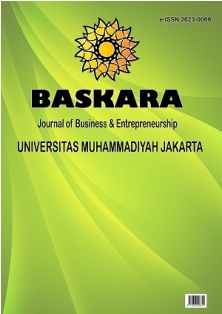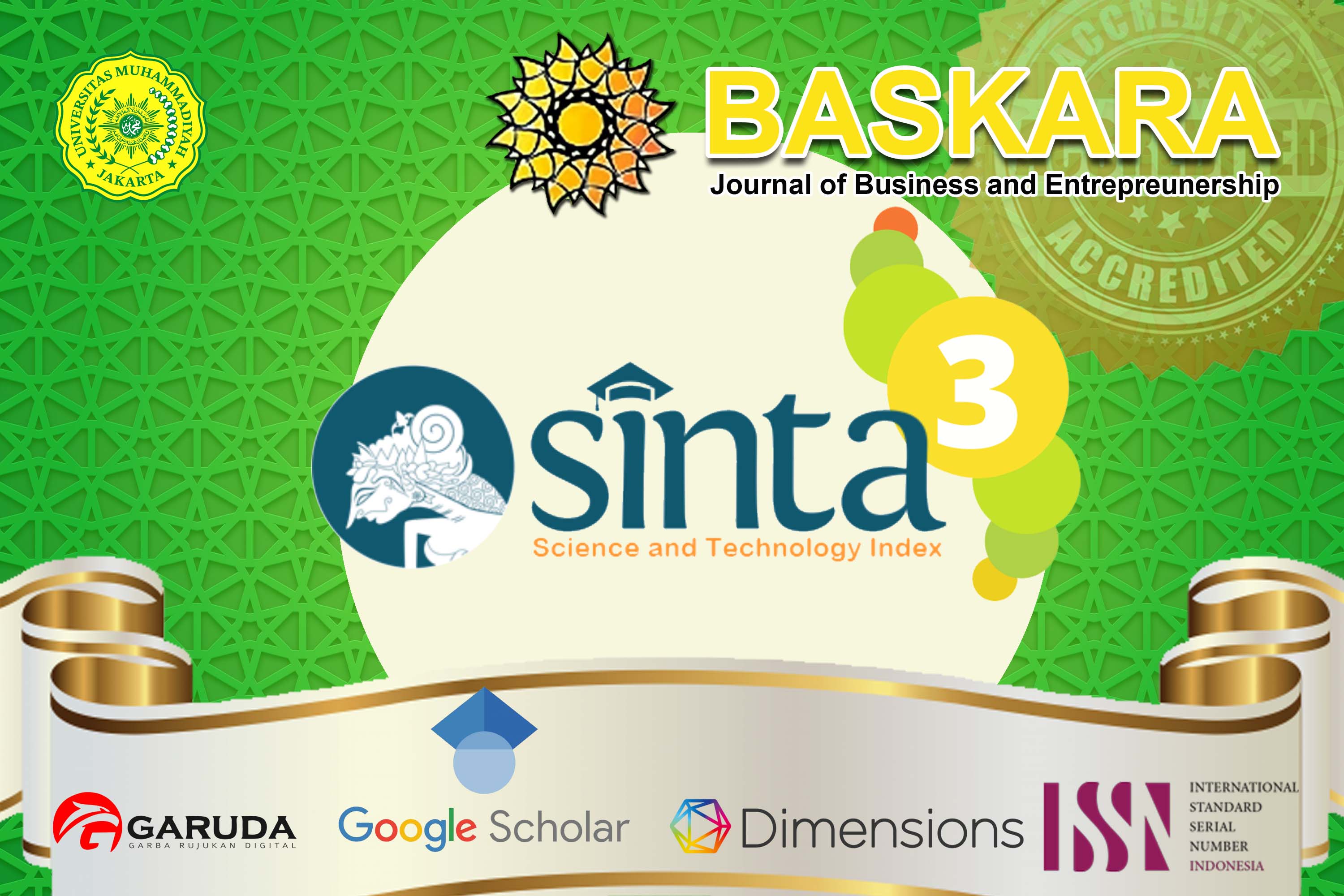Women’s Role in Mitigation and Disaster Management
DOI:
https://doi.org/10.54268/baskara.v3i1.8513Keywords:
Women, Actors, Anticipation, Climate changeAbstract
The impact of climate change caused by global warming is currently one of the trending topics in various media and it is an extremely serious threat to human security. Forest fires, floods, landslides and changes in lifestyles to survive natural disasters are the very significant contributing factors to poverty rates in various parts of the world. The London School of Economics and Political Science conducted a study of 141 countries affected by disasters in the 1981-2002 period and found a close link between natural disasters and women's socioeconomic status. Data from the National Agency for Disaster Management (BNPB) states that women have 14 times of risk for becoming victims of disasters compared to adult men. Women become the most victimized because women prioritize children and their families rather than saving themselves. Although women bear more risks to climate change, women can also have the principal opportunity and role in implementing climate change mitigation adaptation, namely by making women actors in disaster mitigation and drivers of change in parallel to their strong responsibilities to their families. By providing adequate knowledge for women about adaptation and mitigation of disasters, the women can turn themselves to be the strategic activists in coping with disasters for communities living in disaster-prone areas.This study is a comparative discussion of three research results to obtain an overview and find solutions to women's problems from the consequences of climate change, which is a study by changing women from being the most victims of natural disasters to becoming the driving actor for families and communities in overcoming disaster and her ability to survive the post-disaster situation. The conclusion is the three levels of gender roles related to climate change to increase women's adaptive capacity. An adaptation strategy needs the form of 1. Increasing the role of women in the political arena. It is a crucial issue because women's rights can be protected by their presence and role, as well as women in guarding policies. 2. Increasing the role of women in the realm of education. Education is no less important than politics because education will provide a foundation for understanding and self-confidence, bargaining and personal branding for women so that their presence in society will be recognized and will no longer be discriminated. 3. Cultural reconstruction based on gender equality is very important because so far, the notion of patriarchy is still inherent in our culture. Many perspectives are cooptated on the statement that superior (men) are stronger then give rise women mythos that is said to be weak (women). In reality, the presence of women is still fundamental to the aspect of maintaining the economy and education for the continuation and the quality of the life in the society.References
Rochmayanto, Y., & Kurniasih, P. (2013). Peranan Gender dalam Adaptasi Perubahan Iklim pada Ekosistem Pegunungan di Kabupaten Solok, Sumatera Barat. Jurnal analisis kebijakan kehutanan, 10(3), 203-213.
Ollenburger, B. C. (2014). Ollenburger Responds. Mennonite Life, 60(September 2005).
Walangitan, H. D. (2017). Kajian Sistem Perladangan di Kabupaten Bolaang Mogondow (Studi Kasus Perladangan di Kphp Wilayah II Kabupaten Bolaang Mongondow). AGRI-SOSIOEKONOMI, 13(1), 45-54.
Ditjen, P. L. S. (2003). Program Life Skills Melalui Pendekatan Broad Based Education (BBE). Jakarta: Direktorat Tenaga Teknis Depdiknas.
Ari, M. K. H. A. A., Idayanti, R., & Munawiroh, A. (2019). Peran Perempuan dalam Penanganan Bencana: Studi Meningkatkan Rasa Kemanusiaan Pada Jiwa Perempuan dalam Penanganan Bencana. AN-NISA: Jurnal Studi Gender dan Anak, 12(1), 583-595.
Sarwono, B. K. (2010). Pemaknaan Isu Pemanasan Global dan Lingkungan di Media oleh Kaum Perempuan Urban. Jurnal Ilmu Komunikasi Terakreditasi, 8(2), 178-190.
Perempuan, Pertanian, dan Kekuatan Ekonomi Indonesia (Dian Novita Susanto, 2019) (https://timurmedia.com/perempuan-pertanian-dan-kekuatan-ekonomi-indonesia/)
Perempuan Petani Menghadapi Berbagai Rintangan (Gina Nurohmah, 2017)
(https://binadesa.org/perempuan-petani-menghadapi-berbagai-rintangan/)
Yohana Yembise: Sambutan Acara Penguatan Kapasitas Perempuan Calon Legislatif pada Pemilu 2019, Publikasi dan Media Kementrian Pemberdayaan Perempuan dan Perlindungan Anak: 2019
(https://www.kemenpppa.go.id/index.php/page/read/29/1837/tingkatkanpartisipasiperempuan-dalam-pemilu-2019)
Dadang Yunus L, Kecakapan Hidup (Life Skills) Dalam Pemberdayaan Perempuan Kepala Keluarga (Pekka) Untuk Peningkatan Pendapatan Dan Kemandirian Berwirausaha (https://ejournal.upi.edu/index.php/pls/article/view/)
Downloads
Published
Issue
Section
License
In order for Baskara: Journal of Business and Entrepreneurship to publish and disseminate research articles, we need publishing rights (transfered from author(s) to publisher). This is determined by a publishing agreement between the Author(s) and Baskara Journal. This agreement deals with the transfer or license of the copyright of publishing to Baskara: Journal of Business and Entrepreneurship, while Authors still retain significant rights to use and share their own published articles. Baskara : Journal of Business and Entrepreneurship supports the need for authors to share, disseminate and maximize the impact of their research and these rights, in any databases.
As a journal Author, you have rights for a large range of uses of your article, including use by your employing institute or company. These Author rights can be exercised without the need to obtain specific permission. Authors publishing in Baskara : Journal of Business and Entrepreneurship have wide rights to use their works for teaching and scholarly purposes without needing to seek permission, including:
- use for classroom teaching by Author or Author's institution and presentation at a meeting or conference and distributing copies to attendees;
- use for internal training by author's company;
- distribution to colleagues for their reseearch use;
- use in a subsequent compilation of the author's works;
- inclusion in a thesis or dissertation;
- reuse of portions or extracts from the article in other works (with full acknowledgement of final article);
- preparation of derivative works (other than commercial purposes) (with full acknowledgement of final article);
- voluntary posting on open web sites operated by author or author’s institution for scholarly purposes.
Copyright Transfer Agreement for Publishing (Publishing Right)
The Authors who submit manuscript has to understand that if accepted for publication, mean that all copyright and publishing right of the article shall be assigned/transferred to Baskara: Journal of Business and Entrepreneurship as assigned publisher.
- CC BY-NC: This license allows reusers to distribute, remix, adapt, and build upon the material in any medium or format for noncommercial purposes only, and only so long as attribution is given to the creator.
It includes the following elements:
BY ![]() – Credit must be given to the creator
– Credit must be given to the creator
NC ![]() – Only noncommercial uses of the work are permitted
– Only noncommercial uses of the work are permitted
Baskara (C) Copyright (2022):
BASKARA: Journal of Business and Entrepreneurship by https://jurnal.umj.ac.id/index.php/baskara
is licensed under a Creative Commons Attribution-NonCommercial 4.0 International License








